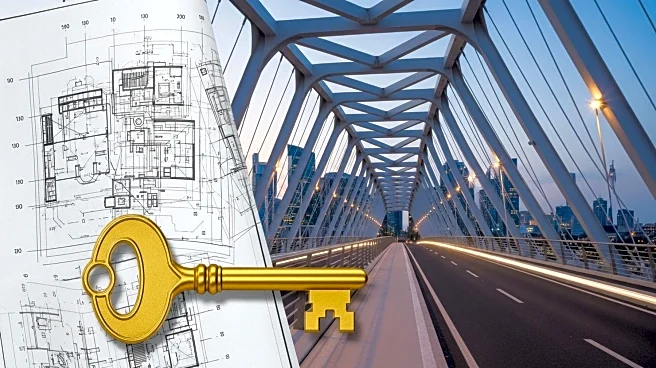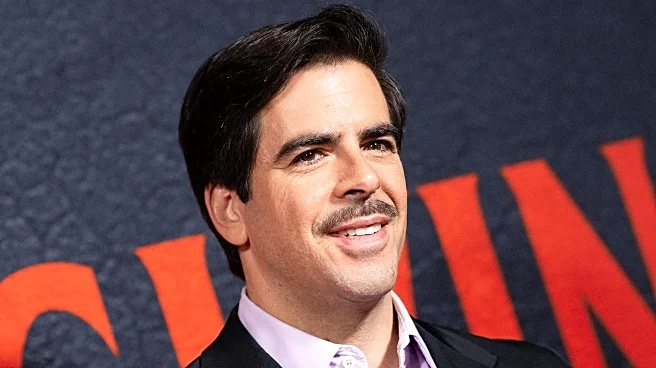What's Happening?
Silvia Ruiz, Ferrovial's global head of investor relations, emphasized the importance of public-private partnerships (PPP) in the development of U.S. infrastructure. Ferrovial, a civil engineering firm, is involved in major projects like New York's $9.5 billion Terminal One at JFK Airport. Ruiz highlighted the resilience of infrastructure projects such as toll roads and airports, which offer stable returns and outlast economic cycles. The firm has seen strong revenue growth in its North American assets, with significant contributions from projects like the TEXpress lanes in Dallas-Fort Worth. Ruiz noted that PPPs are essential for closing funding gaps and delivering critical infrastructure efficiently.
Why It's Important?
Public-private partnerships are crucial for addressing the estimated $3.7 trillion investment gap in U.S. infrastructure. These partnerships enable cities to leverage private sector resources to fund and deliver essential infrastructure projects, especially as budgets tighten. The success of projects like the TEXpress lanes demonstrates the economic impact of PPPs, contributing billions to local economies and supporting thousands of jobs. As urbanization and population growth continue, the demand for infrastructure projects increases, making PPPs a vital component of future development strategies.
What's Next?
Ferrovial plans to continue leveraging public-private partnerships to expand its infrastructure projects across the U.S. The firm sees opportunities in cities like Atlanta, Charlotte, Nashville, and Northern Virginia, where there is a clear need for enhanced mobility solutions. With a healthy construction order book and strong profitability, Ferrovial is poised to deliver value to stakeholders through modern, resilient infrastructure. The U.S. Department of Transportation's updated TIFIA program will further support PPPs by enabling more project sponsors to finance their initiatives.
Beyond the Headlines
The evolution of infrastructure projects, such as airports becoming travel hubs with shopping and dining, highlights the sector's adaptability and growth potential. Digital tools like dynamic tolling systems and advanced passenger flow technologies are making travel more efficient, demonstrating the resilience and innovation within the infrastructure sector. These developments create impactful investment opportunities and underscore the importance of infrastructure as a durable asset class.










